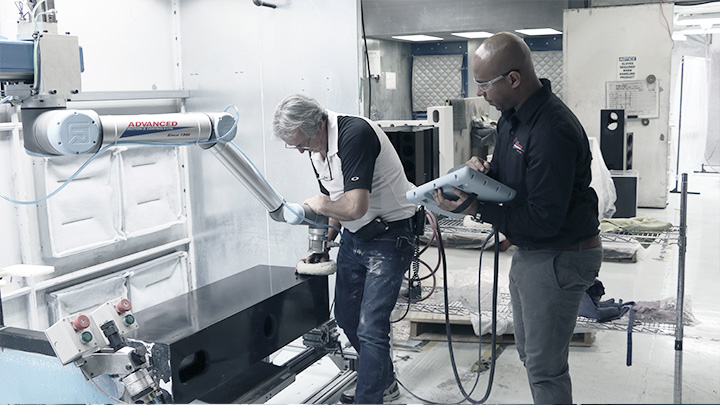
Manufacturer adoption of collaborative robots is strong and growing, says report
New distribution channels and market entrants are expanding availability
A recent technology survey by ABI Research of management level decision makers at manufacturing companies revealed that the adoption of collaborative robots among manufacturers is strong and ongoing.
A full 13 per cent of the companies surveyed have collaborative systems currently in operation, a significant percentage especially given that commercial class systems only became readily available beginning in 2014.
Another 15 per cent indicated that they expect to have collaborative robots at work within the next 12 months, adds the industry survey, entitle Transformative Technology Adoption and Attitudes – Robotics.
Manufacturing firms with more than 250 employees were much more likely to have collaborative systems in operation or have that intention in the near term.
Dan Kara, research director, robotics at ABI Research, says: “Although industrial robots have found much success supporting manufacturing operations, the usefulness of these same systems has been limited by their high costs, complex programming, inflexibility, and inability to work in close association with humans.
“As a result, the market for collaborative robots, human-scale systems that are easy to set up and program, are capable of being used by workers with a wide range of qualification levels, can support multiple types of automation, and can work safely in close proximity to human workers, is very active at this time.”
Both large, established robotics suppliers, as well as newer, smaller firms, are developing and introducing innovative collaborative robotics technologies into the market.
Examples include Universal Robots, which is part of Teradyne, Kuka, Rethink Robotics, ABB, Kawada Industries, Fanuc, Franka, Denso, and Comau.
